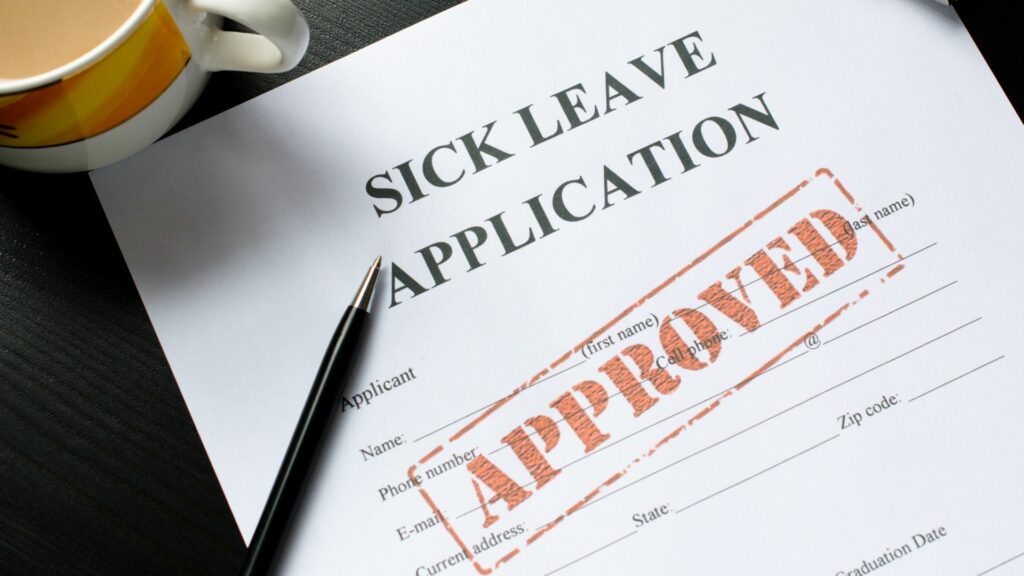Employment Law
A guide on the Sick Leave Act 2022
6 minute read
Previously, Ireland had been an outlier amongst the member states of the EU as we were one of the few countries did not provide for a statutory mandatory sick pay scheme to be implemented by employers.
On 20 July 2022, this position changed when the Sick Leave Act 2022 became law. Now that this legislation has been enacted, all employees whether fulltime or parttime now have an entitlement to statutory sick leave and pay to cover situation where they would otherwise be capable of working, but due to either illness or injury are unable to.
The entitlement to sick pay will formally start once the sections of the Act dealing with this are commenced, and a Ministerial Order doing this is expected shortly.
Sick pay entitlements
Currently, the Act provides for up to 3 days per year of statutory sick pay per employee. It is envisaged that in the second year of the Act’s operation, this will rise to 5 days in year 2, 7 days in year 3, and 10 days in year 4.
Sick pay will be paid by employers at a rate of 70% of an employee’s wage, subject to a daily maximum of €110.
It is of course open to employers to provide a more generous sick leave/pay scheme, in if they have such a scheme in place, then the provisions of the Act will not apply.
In determining whether a scheme is more favourable to employees than the provisions of the Act, the following items will be considered:
- The period of service of an employee that is required before sick leave is payable
- The number of days that an employee is absent before sick leave is payable
- The period for which sick leave is payable
- The amount of sick leave that is payable
- The reference period of the sick leave scheme
To be entitled to avail of the sick leave/pay provisions under the Act, an employee must have completed 13 weeks of continuous with their employer. Additionally, an employee seeking to avail of statutory sick leave will have to be certified by a GP as being unfit to work.
Record-keeping requirements of employers
Under Section 13 of the Act an employer must make a record of the statutory sick leave taken by each of his or her employees. A record for the purposes of this provision of the Act must include:
- The period of employment of each employee who availed of statutory sick leave;
- The dates and times of statutory sick leave in respect of each employee who availed of such leave; and
- he rate of statutory sick leave payment in relation to each employee who availed of statutory sick leave.
Records of this created by an employer must be retained by the employer concerned for a period of 4 years from the time of their making. If an employer fails without reasonable cause to maintain such records, then they could face a fine of €2,500 for each breach of their record-keeping obligations.
Employee protections under the Act
Under section 12 of the Act, and employer is specifically prohibited from penalising, or threatening to penalise an employee for proposing to exercise or having exercised their entitlement to statutory sick leave.
If however, a penalisation as defined in this section of the Act occurs, and constitutes a dismissal of the employee within the meaning of the Unfair Dismissals Acts, the employee cannot claim relief in respect of the penalisation both under the Sick Pay Act and under the Unfair Dismissal legislation.
Here “penalisation” means any act or omission by an employer or a person acting on behalf of an employer that affects an employee to his or her detriment with respect to any term or condition of his or her employment, including:-
- Suspension, lay-off or dismissal (including a dismissal within the meaning of the Unfair Dismissals Acts 1977 to 2015), or the threat of suspension, lay-off or dismissal
- Demotion or loss of opportunity for promotion
- Transfer of duties, change of location of place of work, reduction in wages or change in working hours
- Imposition or the administering of any discipline, reprimand or other penalty (including a financial penalty)
- Coercion or intimidation
Complaints by employee
If an employer believes that their employer to have as failed to comply with the provisions of this Act, the employee may make a complaint to the Workplace relations Commission and seek to have the matter be go through the Adjudication process.
A decision of an adjudication officer in relation to a complaint or dispute between an employee and an employer concerning the employee’s entitlement under this Act may include an award of compensation to such a level that the adjudication officer considers just and equitable having regard to all the circumstances but cannot exceed 4 weeks’ remuneration.
Should any decision of the Workplace Relations Commission be appealed to the Labour Court, the Labour Court may similarly make an award of compensation (in favour of the employee concerned to be paid by the employer concerned) of such amount, as the Labour Court considers just and equitable having regard to all the circumstances but not exceeding 4 weeks’ remuneration.
Potential exemption for employers
Employers may be able to receive an exemption from the obligation to pay statutory sick pay, but only on very limited grounds. To do this, an employer must apply to, and receive consent from the Labour Court in order to cease paying statutory sick leave payments.
If the Labour Court agrees to such a proposal by an employer, then the employer can cease paying statutory sick pay for between 3 and 12 months, but it must resume making suck payments after the 12 month period has elapsed.
To avail of the exemption, the employer must demonstrate that:-
- Their business is experiencing severe financial difficulties
- An agreement has been reached with their employees, and the employees are consenting to the exemption.
Even if these requirements are not met, the Labour Court may still grant an exemption if satisfied that the employer informed its employees of its financial difficulties, and sought to reach agreement with them, and that if the employer was required to pay statutory sick pay, the viability of the business would be affected, or a significant number of employees would have to be laid-off or made redundant.
Given the periodic changes envisaged under the Act, it would be advisable foe employers to seek advice in relation to any new sick pay scheme they intend to implement in line with the provisions of the Act.
Speak with an expert employment solicitor
If you require advice on any aspect of employment law, we can help. Visit Employment Law or Contact Us to speak with an expert.
:: George Colley, Associate Solicitor at Augustus Cullen Law Solicitors.
Share



